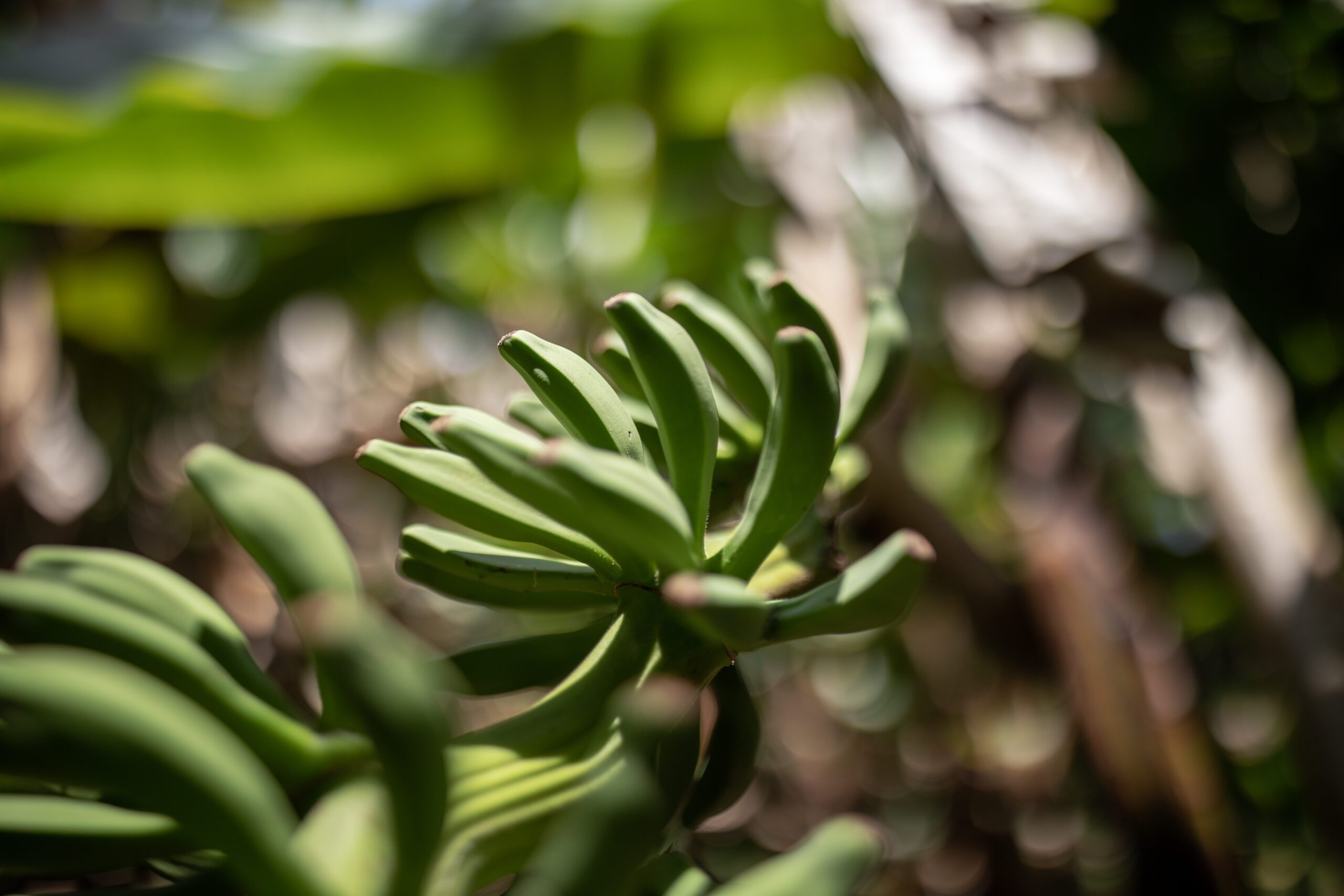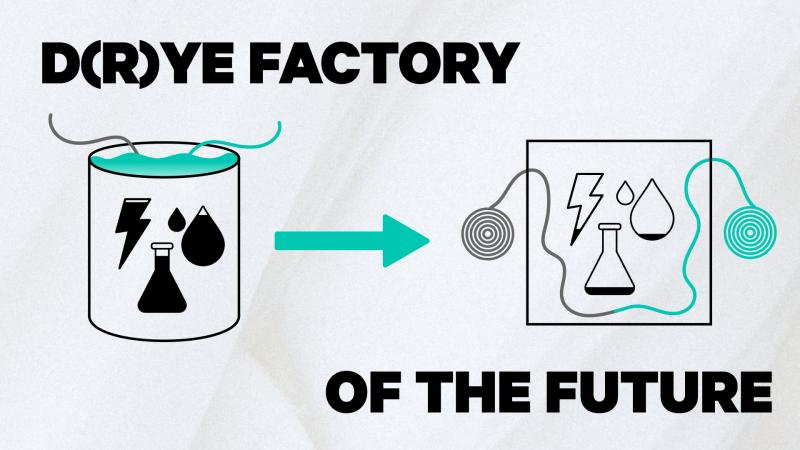In Conversation with Alchemie Technology: Transforming Dry Processing for Textile Dyeing and Finishing
Image by Alchemie Technology
9 July 2024
Can you tell us about Alchemie, how it started, and what the organisation does?
Alchemie Technology is based in the innovation hub of Cambridge, UK. The team has dedicated over a decade to research and development, creating revolutionary dry processing technology for dyeing and finishing textiles.
The company was founded by Dr. Alan Hudd, who has been central to many important technology developments over the last 30 years in the field of digital and inkjet printing. He has more than 250 patents to his name and has been recognised for many commercial industry successes and who experienced a ‘eureka’ moment during a visit to China. Witnessing firsthand the severe impact of dyeing houses on local communities, he realized the enormity of this global problem, which was only set to worsen. Having visited over 60 factories, Dr. Hudd saw the terrible working conditions of those involved in dyeing textiles. It struck him that this couldn’t be the standard method for dyeing textiles, nor could it be the fate of those involved in textile production. This realization spurred the pursuit of digital technology and innovation, with the belief that Alchemie could truly transform the industry.
In 2021, Alchemie successfully developed a new generation of dyeing machinery capable of decarbonizing the textile industry, transforming it into a non-polluting, clean-tech sector. After a beta test phase, Alchemie launched a full production facility in Taiwan in April 2024. Our patent portfolio includes 14 patents and 4 trademarks, underscoring our commitment to innovation and sustainability in the textile industry.
What problem is your innovation solving and how does the technology work?
The textile industry is a major environmental polluter, contributing over 3% of global CO2 emissions and generating 20% of the world’s wastewater from fabric dyeing and finishing processes. At current growth rates, textile dyeing could account for 10% of global CO2 emissions by 2050. Alchemie’s mission is to eliminate the environmental impact of these processes and drive significant change in the industry.
Our proprietary digital liquid application technology is at the forefront of this mission. Unlike traditional methods, which rely on large volumes of hot water and high energy consumption, our technology uses a unique combination of large droplet size and high droplet velocity for exceptional penetration into textiles. Developed over a decade and manufactured to medical device quality, our nozzle technology employs a piezoceramic element to accurately apply nanolitre droplets of dye. These 10-micron drops penetrate the fabric and coat individual fibers, with our system capable of applying 1.2 billion digitally defined drops per linear meter of fabric. This means applying the right amount of dye so that there is no excess dye to be washed out.
In contrast to the traditional jet exhaust process, which uses hot water at temperatures up to 135°C and requires significant energy typically sourced from fossil fuels, our Endeavour™ dyeing process is a low-energy, low-water solution. This process delivers substantial sustainability benefits, significantly reducing carbon emissions and eliminating wastewater production.
Endeavour™ is a full-width, production-scale system that combines digital dye application with in-line drying, fixation, and softening. This integrated approach ensures low-carbon, wastewater-free textile dyeing, setting a new benchmark for sustainability in the industry.
The key benefits of our digital approach to textile dyeing and finishing are:
- Reduction of energy consumption by up to 85%
- Reduction of waste water emissions by up to 95%
- Chemistry reduction up to 30%
- Significant cost reductions of up to 50%
What have been the biggest successes so far?
We were very fortunate to find two external investors: H&M, a trade investor, and At One Ventures, a San Francisco-based venture capital fund focused on disruptive technologies that combat climate change. These like-minded investors were supportive and encouraging of our mission, providing the impetus needed to reach where we are today. In addition to this crucial support, we have participated in numerous initiatives, including winning prestigious awards such as the EIT-Climate-KIC, the EU’s main climate innovation initiative. The Knowledge and Innovation Community (KIC) works to accelerate the transition to a zero-carbon, climate-resilient society, and being recognized by such esteemed bodies has further validated and propelled our efforts in creating sustainable solutions for the textile industry.
In February 2024, Alchemie launched the Discovery lab system, designed to give industry professionals a hands-on understanding of Alchemie’s cutting-edge technology. Following this, in April 2024, Alchemie reached a significant milestone by opening its first production and demonstration facility in Taiwan. This new facility serves as a dedicated centre for showcasing the company’s revolutionary advancements in the textile industry, specifically focusing on woven polyester. Alchemie Technology’s innovative Endeavour low-carbon digital textile dyeing process represents a transformative leap by shifting from traditional wet dyeing techniques to an advanced dry process. This breakthrough not only drastically reduces environmental impact but also sets a new benchmark for sustainability in textile dyeing.
What role does collaboration play in bringing innovations to scale?
Collaboration plays a critical role in scaling innovations within the textile dyeing and finishing industry. The complexity and global reach of this sector require a cooperative approach to effectively integrate and adopt new technologies. By partnering with textile manufacturers, we can tailor our solutions to meet specific production needs, ensuring smooth implementation and maximizing both environmental and economic benefits. Engagement with brands and retailers is equally important, as their commitment to sustainability drives demand for environment-friendly dyeing processes, creating a market pull that encourages widespread adoption. Additionally, collaboration with industry bodies, standards organizations, academic institutions, and research organizations helps set new benchmarks, access cutting-edge research, and develop advanced materials and processes. Working with government bodies and regulatory agencies is also essential for creating a supportive policy environment, offering incentives, and providing funding opportunities. Furthermore, integrating efforts across the entire supply chain ensures that innovations are seamlessly incorporated, while partnerships with environmental and community NGOs enhance the social impact and promote sustainable practices to a wider audience.
Collaboration across various stakeholders accelerates the transition to sustainable practices, ensuring that technological advancements are effectively scaled and their environmental benefits are realized globally.
How has Fashion for Good played a role in your journey so far?
Fashion for Good has played a pivotal role in Alchemie journey by providing crucial support and fostering innovation within the textile industry. As a global initiative aimed at making fashion more sustainable, Fashion for Good has offered us a platform to showcase Alchemie’s groundbreaking digital dyeing solutions. Through their accelerator programs, networking opportunities, and access to a broad ecosystem of brands, manufacturers, and investors, Fashion for Good has enabled Alchemie to refine its technologies and accelerate its market entry. This collaboration has not only helped Alchemie gain visibility and credibility in the industry but also facilitated valuable partnerships that are essential for scaling our innovative, sustainable digital dyeing processes.
Alchemie was also chosen to take part in Fashion for Good D(R)YE Factory of the Future Project that brought together several innovations in textile pre-treatment and colouration, set to accelerate the shift from wet to mostly dry processing.
What’s next for you?
Alchemie Technology’s ambitious 2024 roadmap includes developing in-market production solutions for cotton wovens, knits, and polyester with elastane. Our plans for technology development cover a broad scope, focusing on expanding the range of fabrics and handling solutions. We are committed to advancing technology and anticipate launching innovative solutions for handling knits this year. By ensuring that advancements are not restricted, we aim to create a comprehensive and adaptable technological landscape. Additionally, our commitment to collecting Life Cycle Assessment (LCA) data underscores our dedication to sustainability and responsible development.
We are looking to collaborate with brands and their partners in the supply chain to create a solution that not only meets ESG targets but also provides the necessary return on investment. Expanding globally and securing our position internationally is crucial for us. We aim to establish ourselves as providers of a complete end-to-end solution, addressing the significant latent demand for clean tech solutions in the textile industry. We look forward to working with brands and their supply chains to lead the way in transforming the industry into one we can all be proud of.
Other Articles

In Conversation with Bananatex: From Bananas to Backpacks

Reflections from the D(R)YE Factory of the Future Project

